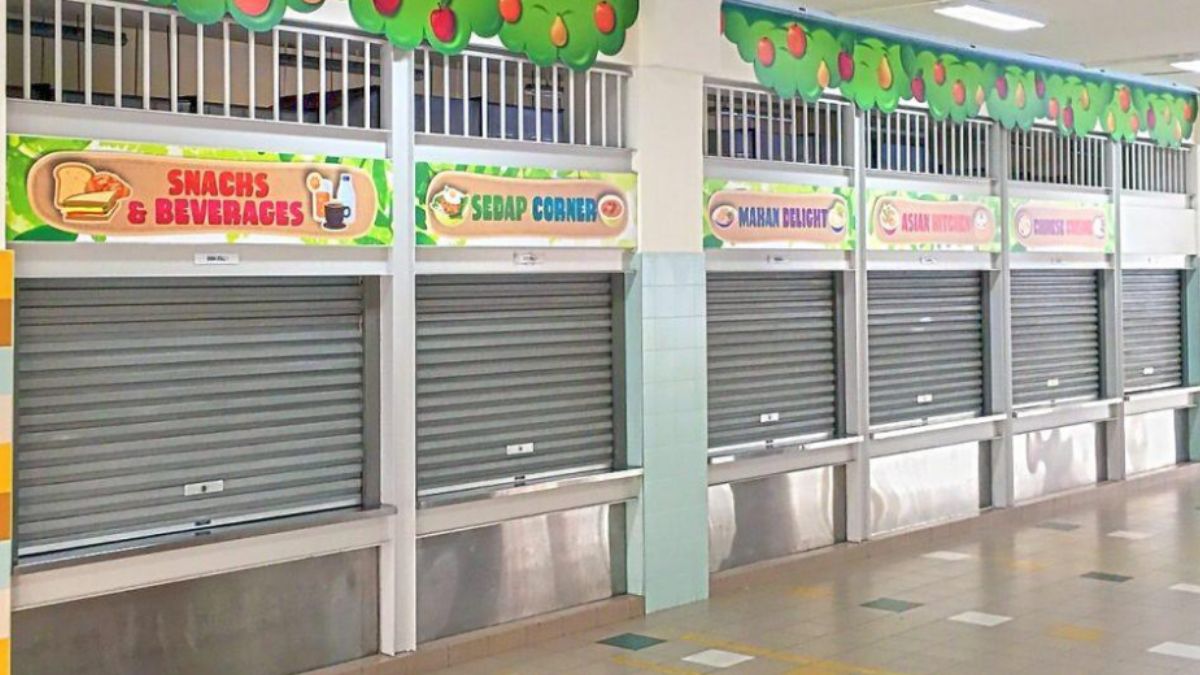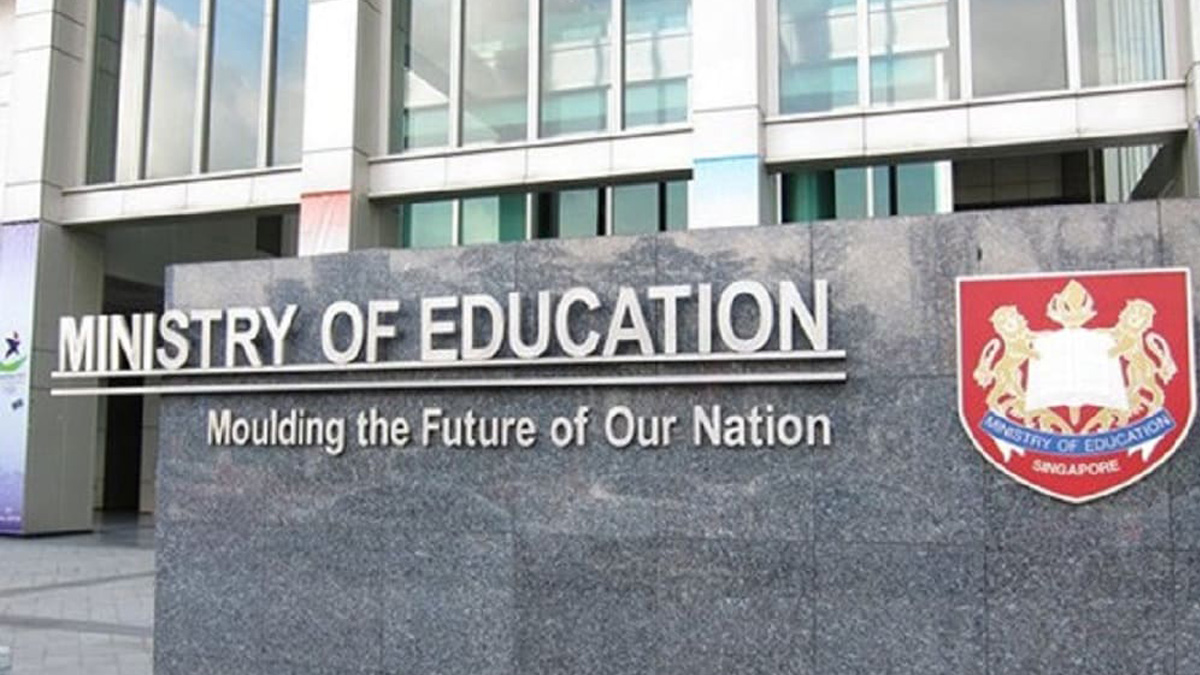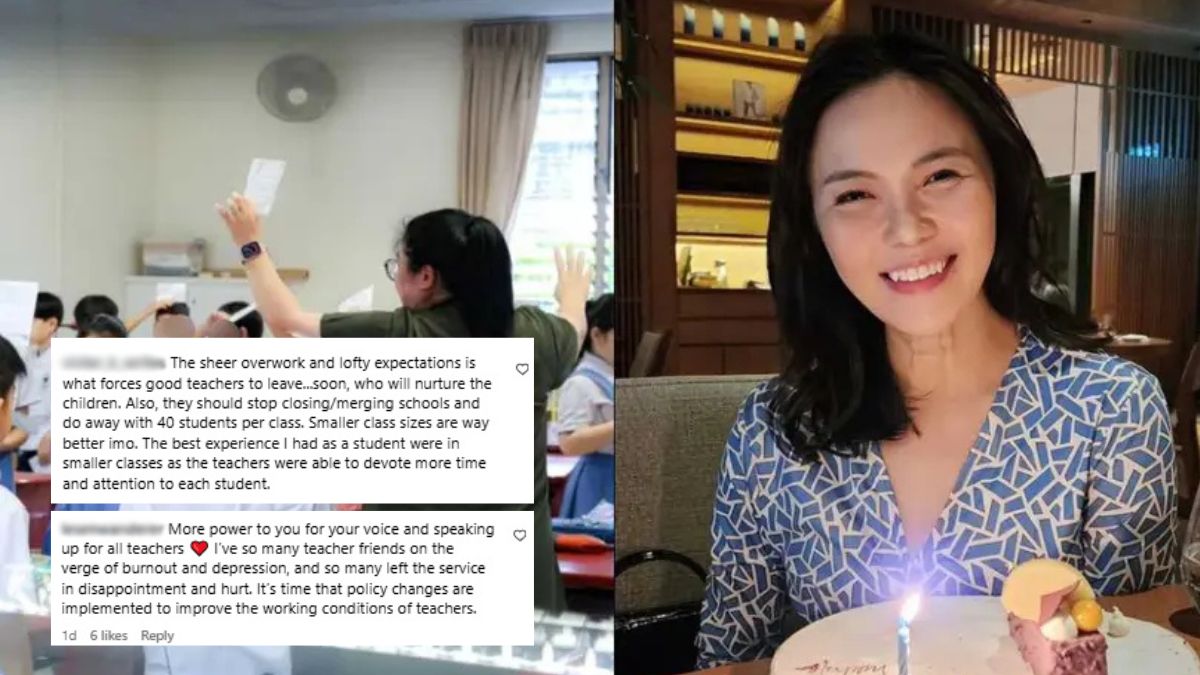Former teacher challenges claims on workload measures, urging minister to witness real classroom conditions
Former teacher Jo Ann Kuek posted a letter on Instagram on 21 November 2025 challenging Education Minister Desmond Lee’s parliamentary claims on teacher workload initiatives. She argued the measures are not reflected in real school conditions. Lee and Minister of State Jasmin Lau have since contacted her to discuss her concerns.

- Former teacher Jo Ann Kuek challenged claims that workload-reduction initiatives for teachers are effective.
- The Education Minister and Minister of State have reached out to her following her public letter.
- Strong reactions from educators highlight issues of workload, burnout and class size.
SINGAPORE: A former educator has publicly challenged recent parliamentary statements on teacher workload, arguing that official initiatives do not reflect daily school realities.
In a letter dated 21 November 2025 and posted on Instagram, former secondary-school teacher Jo Ann Kuek responded to a parliamentary speech delivered by Education Minister Desmond Lee on 4 November 2025.
Claims of a disconnect between policy and reality
According to Kuek, measures highlighted in Parliament—such as allowing teachers to work from home, arrive later, or leave earlier on days without classes—do not match typical teaching schedules.
She wrote that most teachers “do not have days without lessons, meetings or activities that require them to be physically present”.
She questioned whether ministry staff had observed schools directly to determine whether these initiatives were implemented and how widely they were taken up. She urged Lee to visit schools unannounced and “step into the classrooms that aren’t being shown to you”.
Ministerial outreach following the post
Following her social media post, both Lee and Minister of State for Education Jasmin Lau reached out to Kuek.
She confirmed in a later Instagram update on 21 November 2025 that they had approached her separately to discuss the issues raised.
Kuek said she would compile the many responses she had received from teachers and share them so that “real voices from the ground” could be understood more clearly.
Concerns over class size and research cited
A significant portion of Kuek’s letter focused on class sizes in secondary schools.
She stated that during her teaching career she handled four to seven classes of 40 to 43 students each year, arguing that “class size matters”.
She challenged long-standing positions within the Ministry of Education that class size reduction does not meaningfully improve student outcomes, suggesting the research cited “does not reflect our local classroom realities”.
Historical context raised in the discussion
Kuek referenced a parliamentary debate on 21 March 1996, in which opposition parliamentarian Chiam See Tong had proposed shrinking class sizes to about 30.
She cited comments by then-Education Minister Lee Yock Suan, who argued against the idea and maintained that reducing class sizes would double teaching work without improving results.
Kuek expressed hope that the ministry is now better informed than it was in the past, and said class-size decisions should not be left to individual school leadership since policies could vary widely.
Personal account of burnout and departure from MOE
Kuek taught in the Ministry of Education from 2003 to 2010. She recounted leaving the service on 18 January 2010 because she had become “burnt out” and was experiencing stress-related thyroid issues that required lifelong medication.
She wrote that on her last day she left the school “with a box of letters and cards from my students and nothing else”, before breaking down while walking along Orchard Road that same afternoon.
A month later, she said she received a letter informing her she owed S$0.52 due to a salary computation error, which she described as “a slap in the face”.
View this post on Instagram
Kuek’s insistence that “class size matters” closely echoes the Workers’ Party’s long-standing push for smaller classes, which Sengkang MP Associate Professor Jamus Lim revisited in July 2025.
Assoc Prof Lim argued that Singapore’s model has favoured scale and affordability at the expense of personalised instruction, warning that hiring more teachers without firm policies to reduce class sizes would not meaningfully improve learning.
Both Kuek and the Workers’ Party's call contend that genuine educational quality requires smaller, more manageable classes rather than relying solely on technology or marginal staffing adjustments.
Widespread teacher response amplifies concerns
Following the publication of her letter, many current and former educators shared personal experiences with her.
Accounts sent to her described excessive workloads, including weekly commitments exceeding 60 hours due to lesson planning, marking hundreds of scripts, administrative work, school events and co-curricular responsibilities.
Some teachers reported emotional and physical burnout, with several citing inadequate empathy from principals or reporting officers.
Examples included being questioned about work deadlines while hospitalised or being dismissed when requesting leave for family emergencies.
One former educator said they resigned after a request for no-pay leave to care for a critically ill parent was rejected, noting that the principal had remarked, “Don’t tell me you love teaching”, before the parent’s death.
Social media sentiments on systemic issues
Online commenters raised concerns that teachers often leave quietly without acknowledgement, describing the system as a “meat grinder”.
Others highlighted that teacher workload is compounded by increasing demands linked to student behaviour, holistic development and special educational needs.
Several netizens also referenced past experiences, including a conversation at a hospital’s psychiatry department in 2010 where staff said many patients were teachers.
Some commenters drew parallels with expectations placed on other public-sector leaders, noting they rarely experience frontline conditions directly.
Others pointed to the School of Science and Technology as an example of how smaller class sizes and applied-learning models could produce strong student outcomes.
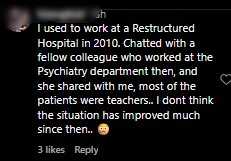
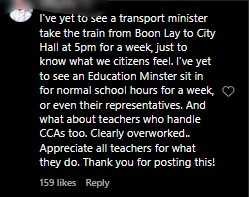
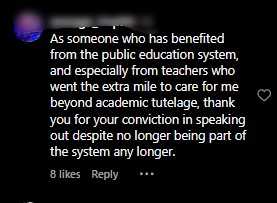
Calls for policy reform and clearer communication
Suggestions from educators included reducing class sizes to about 20, removing bell-curve performance assessments for teachers, and creating career pathways for educators who wish to focus solely on teaching.
There were calls for senior policymakers to return to classrooms periodically to understand the effects of their directives.
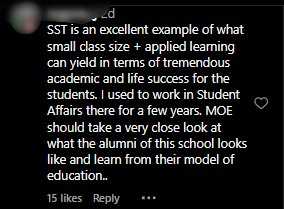
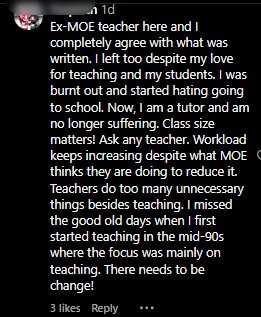

Kuek said effective communication is essential, noting that teachers understand not every proposal can be implemented, but explanations must be clear and compassionate.
In her update on IG, Kuek acknowledged that she did not know whether change would occur but emphasised her intention to ensure that people’s stories “do not go to waste”.
She said the aim was not criticism for its own sake but to encourage a system where dedicated teachers do not “lose heart”.


